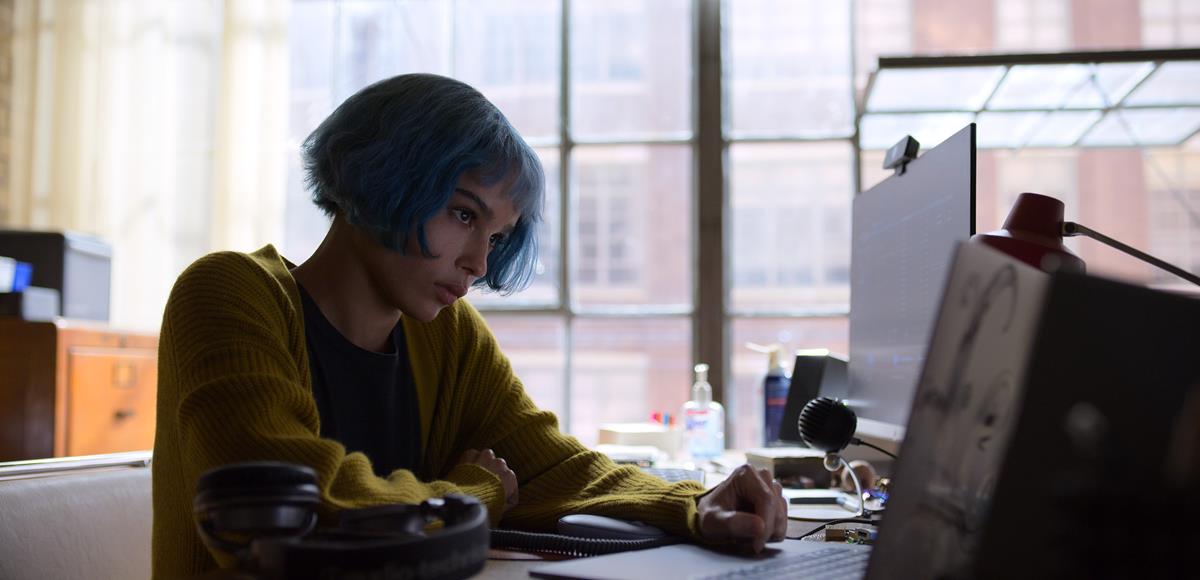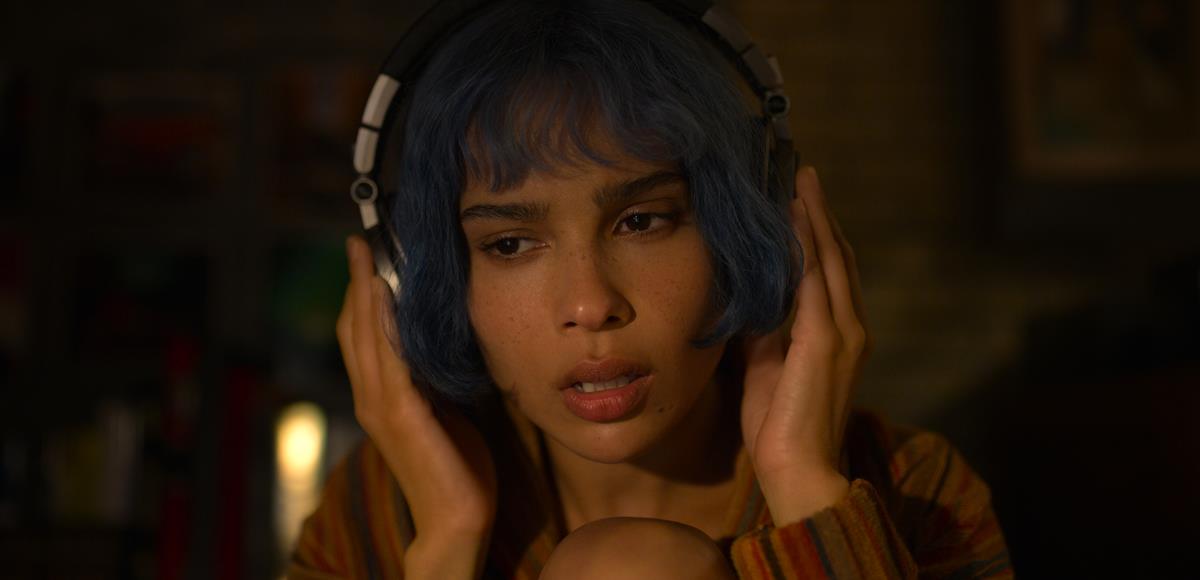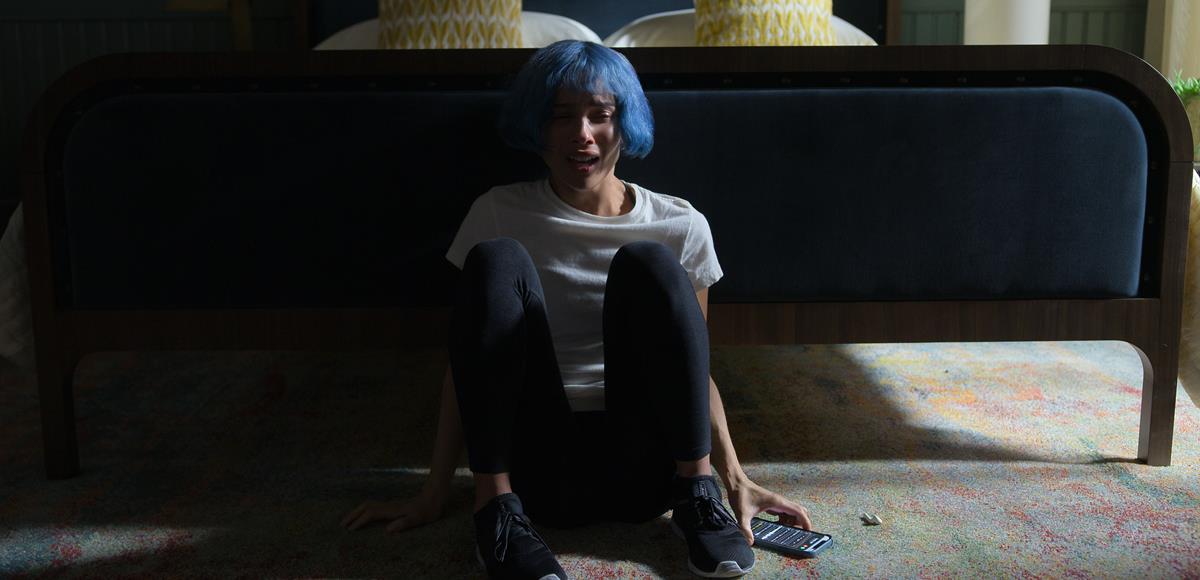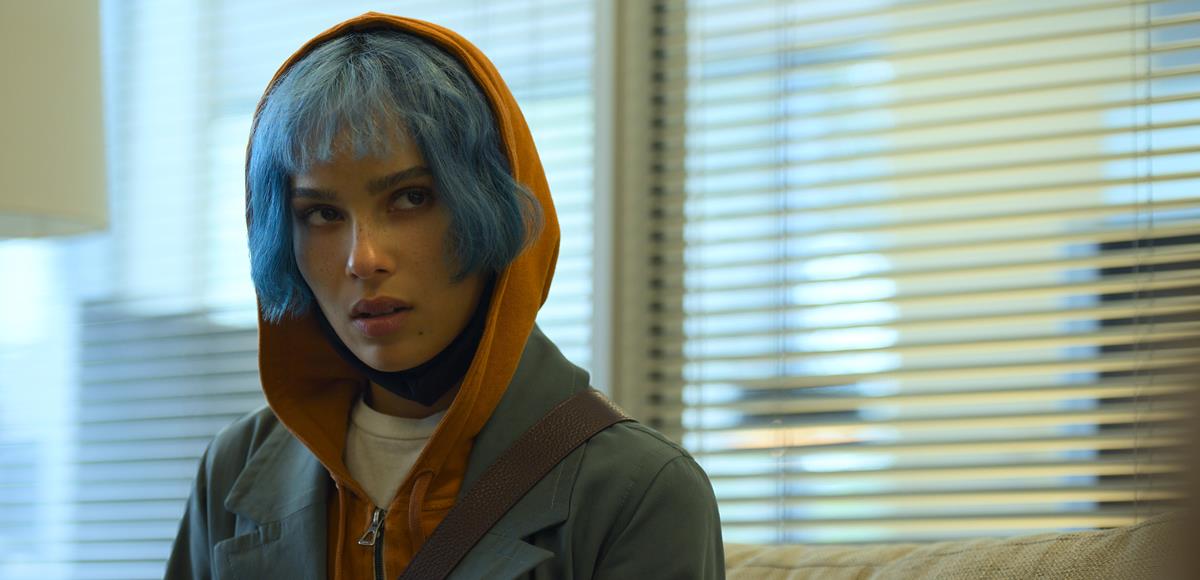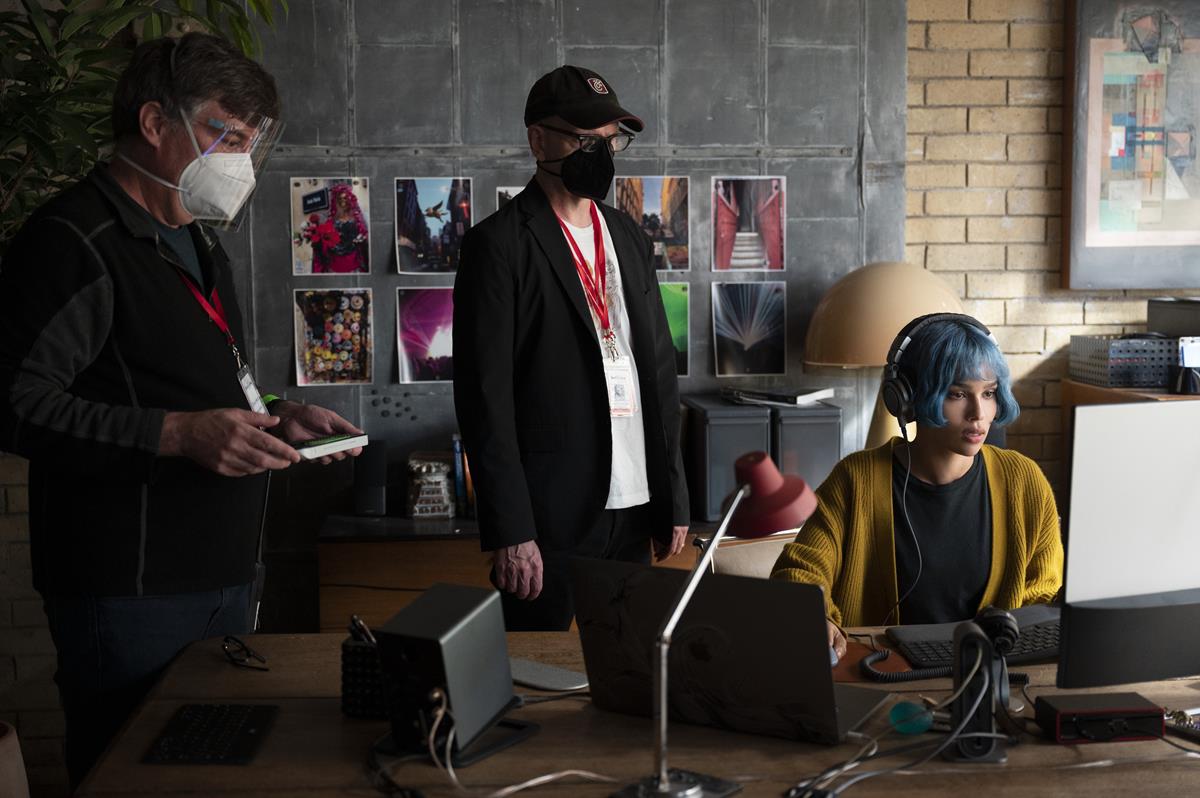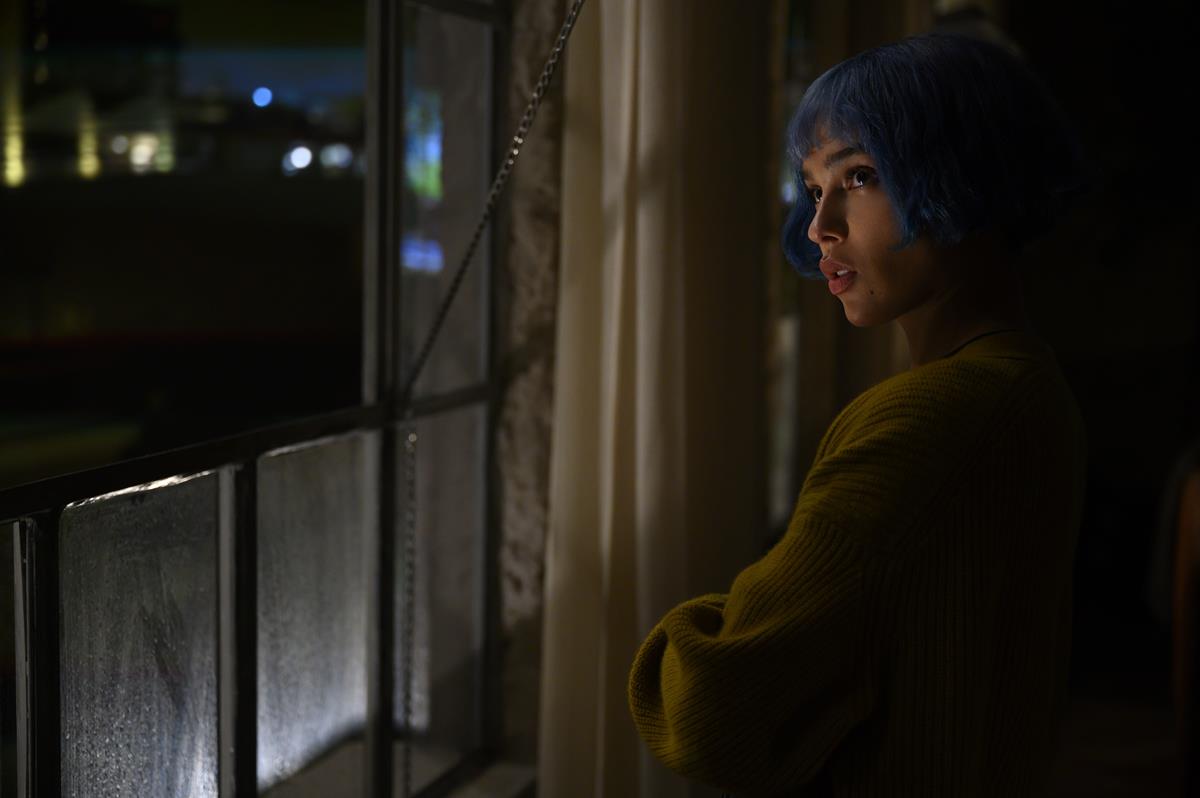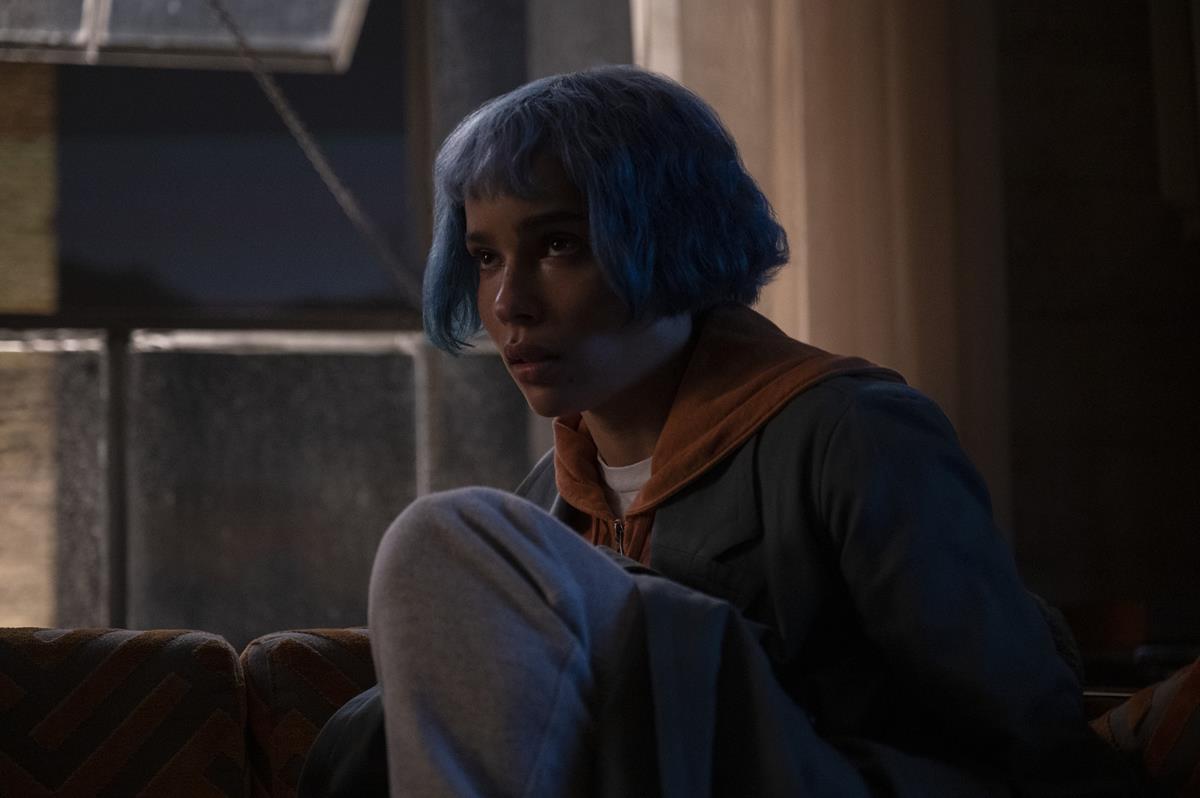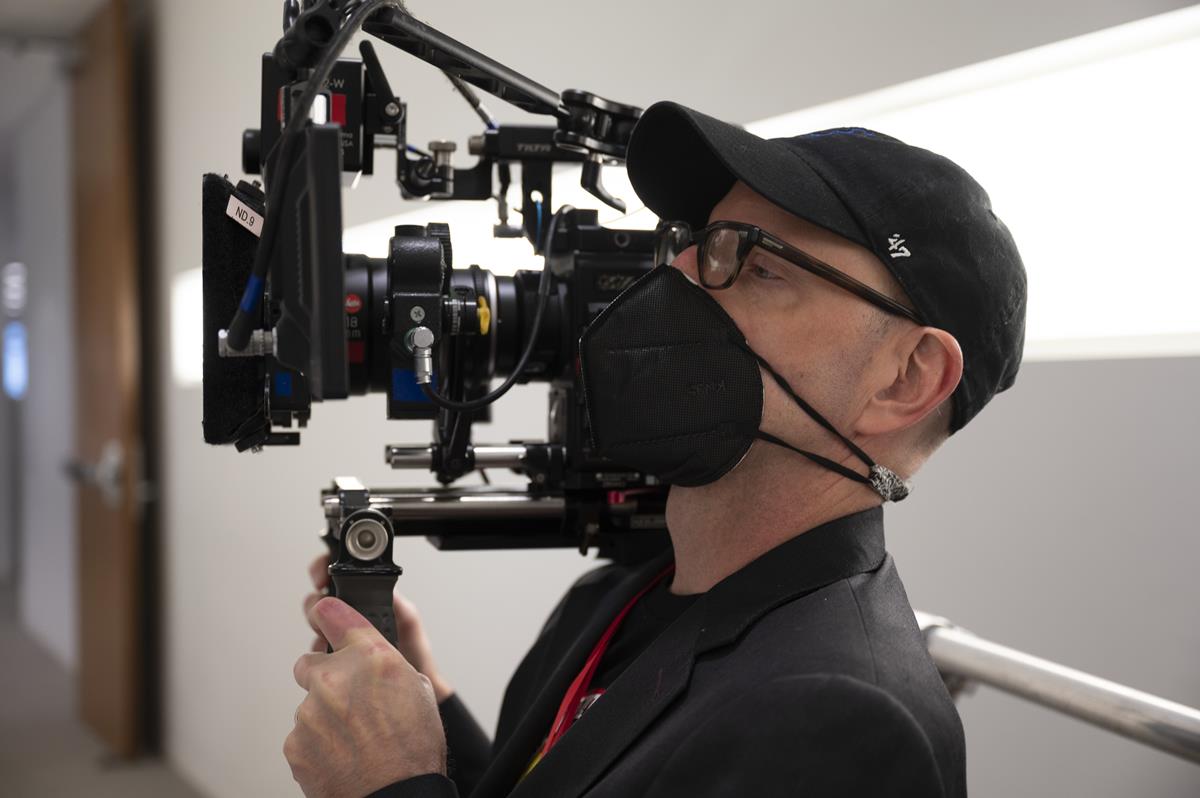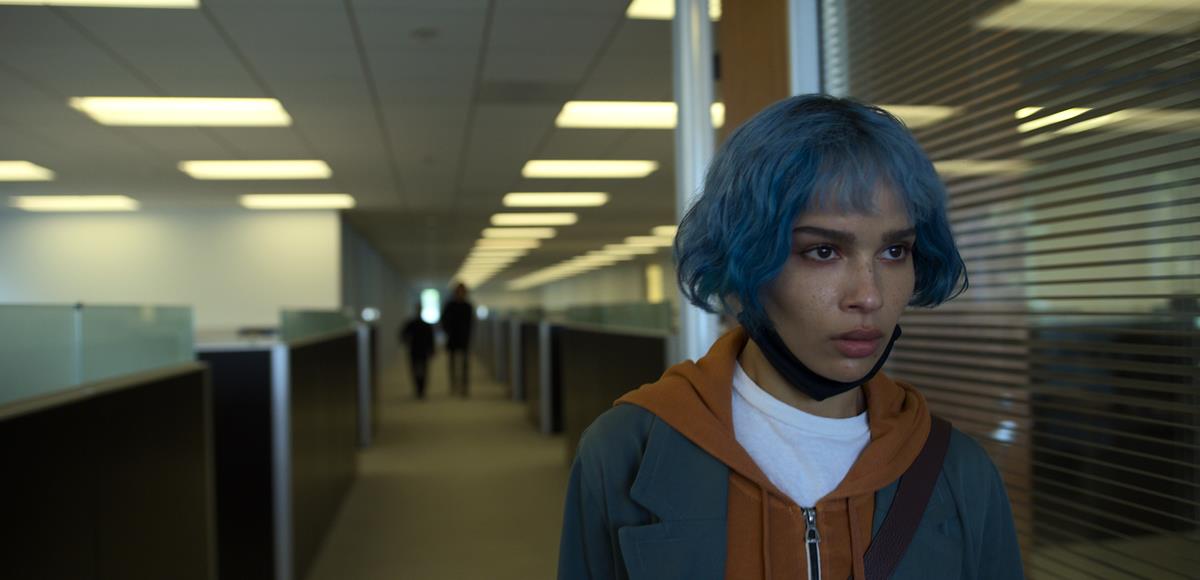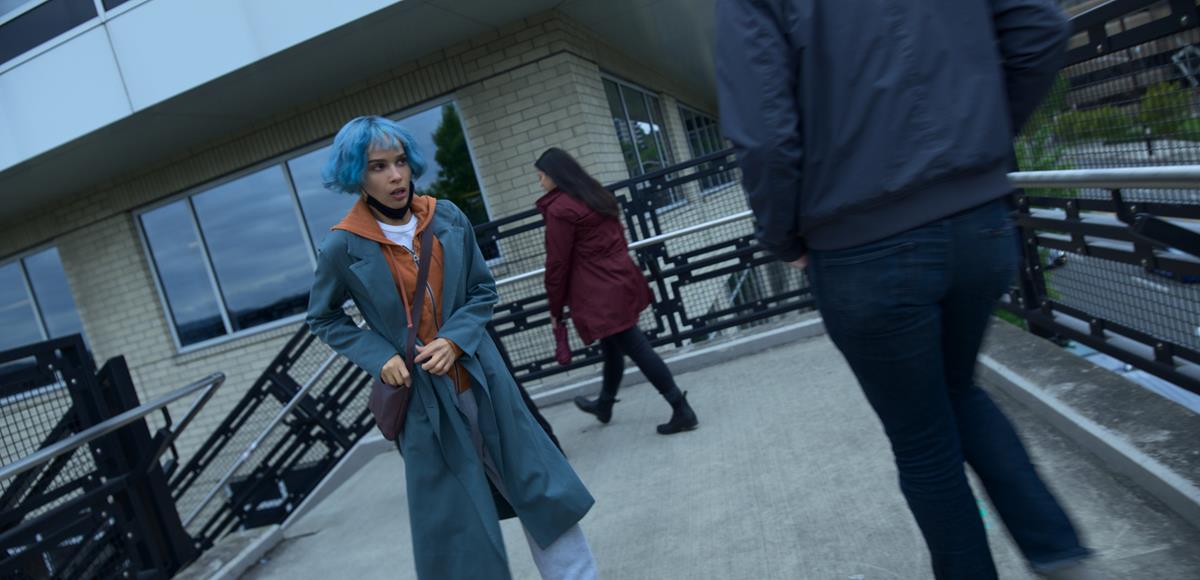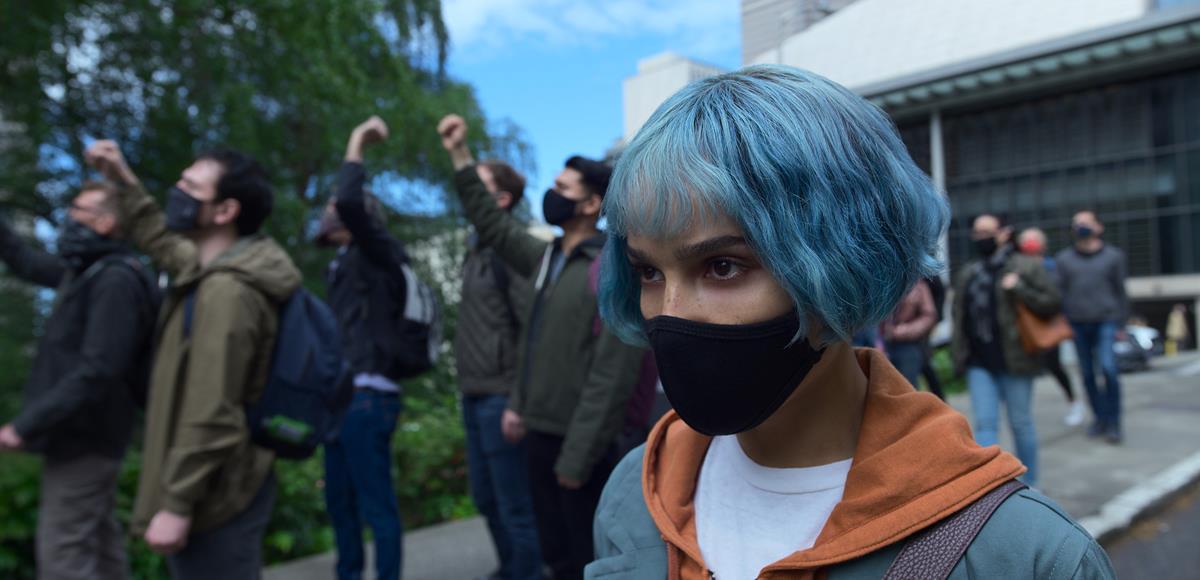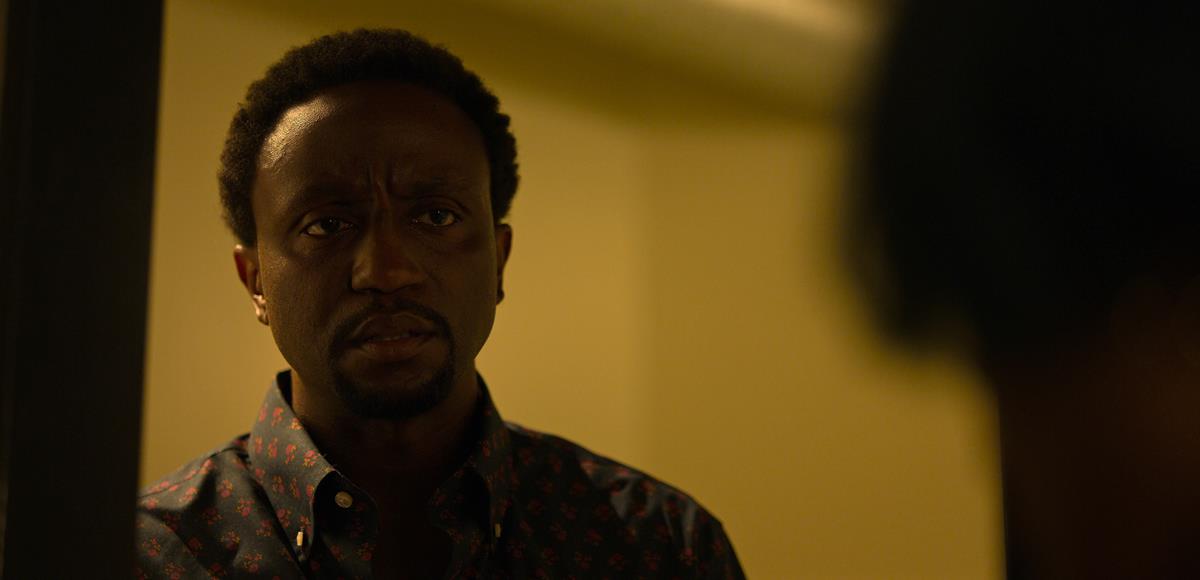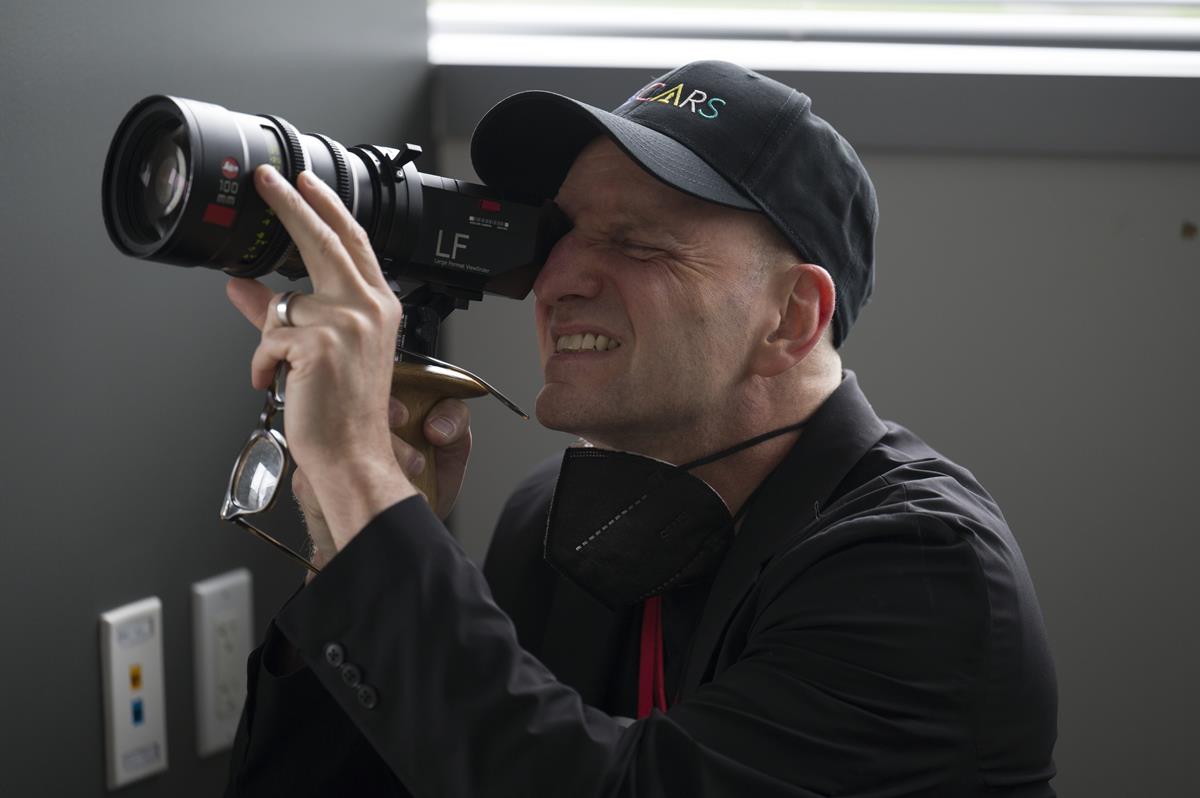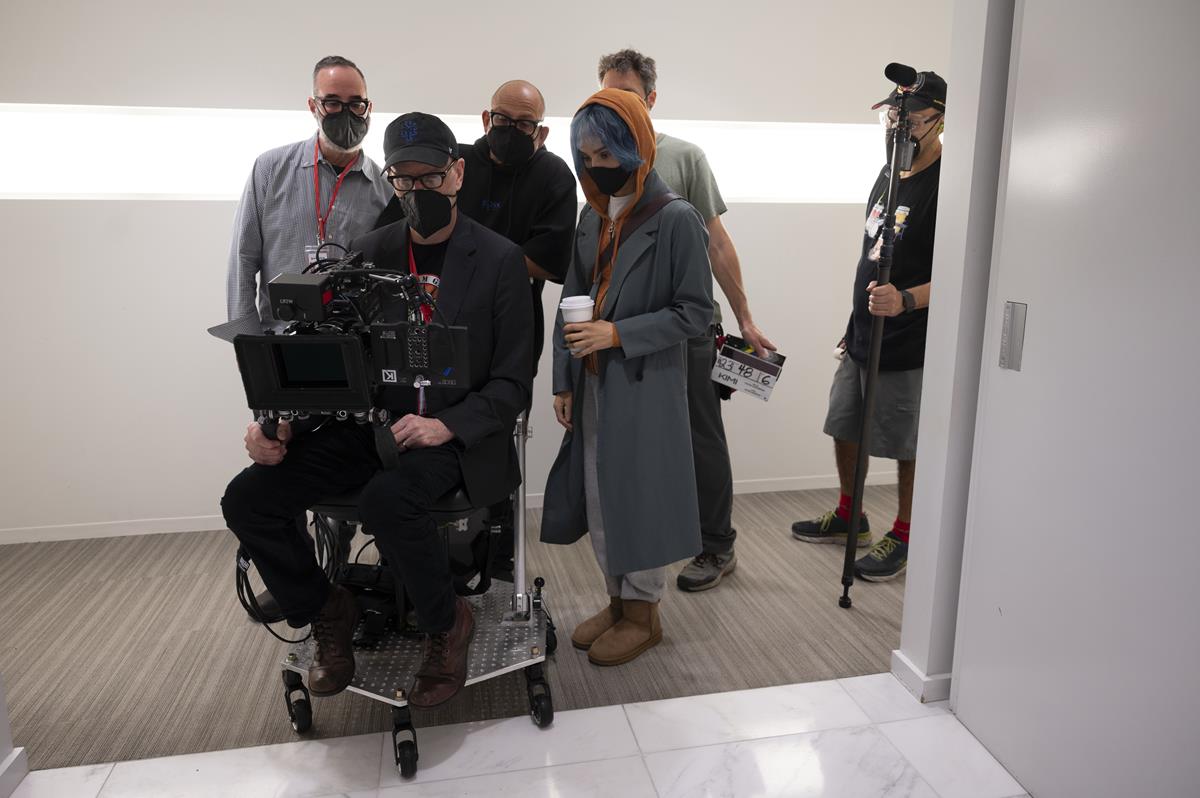
Four years ago when screenwriter David Keopp approached Steven Soderbergh with the idea for Kimi, the two Hollywood A-listers, who had never worked together before, were instantly aligned with their vision for the movie.
This was to be a “bottle” film, Keopp’s expression for accentuating the condensed, the compressed, without giving in to the larger vista. After all, he did write Panic Room.
Soderbergh discussed this aesthetic with the Film Comment podcast. “I think David and I share an impulse to avoid over scaling things. A ‘bottle’ movie is when there’s just a very, very small, well defined perimeter that the story exists within,” he said.
“He likes to take that restriction and go as deep into it and explore as many possibilities that are allowed. I like those too.”
Being a script from fours years ago, any inclination to include the COVID-19 pandemic must only be to serve the story. And so it is with Kimi, but there was a risk in second-guessing where the pandemic would be 10 months from the shoot.
Forbes writer Anhar Karim understands most people’s reluctance to embrace a COVID storyline but applauded Soderbergh’s subtle inclusion. “Many creatives, understandably, have chosen to avoid the topic altogether in order to not remind viewers of ongoing troubles in the real world. Thus, many films, ostensibly set in 2021 or 2022, instead look much more like 2018.
“However, when it came to Steven Soderbergh’s thriller Kimi, the team behind the project opted for a more nuanced approach in an effort to present a more authentic present day.”
READ MORE: ‘KIMI’ Screenwriter On Depicting The Pandemic And Recalling Spider-Man (Forbes)
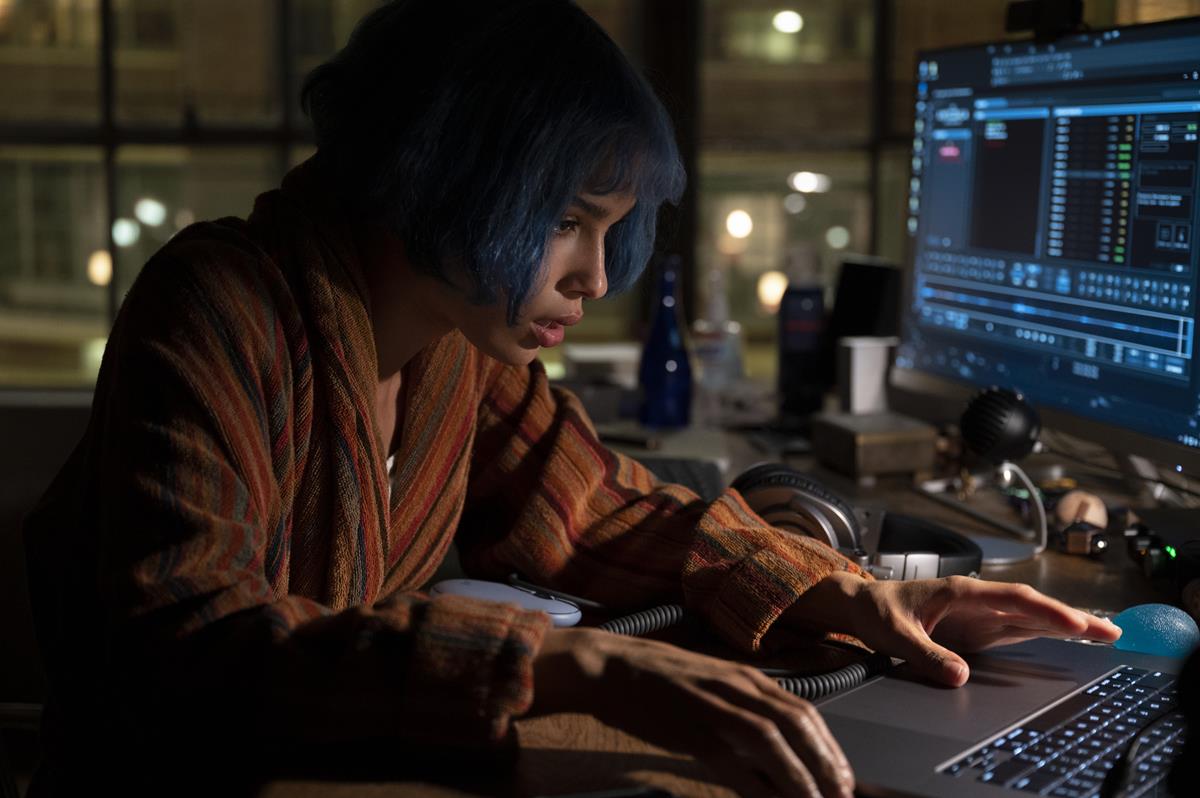
David Ehrlich at IndieWire introduces the film’s premise. “Kimi is a surveillance thriller for an age when everyone knows they’re being spied upon at all times. It’s a simple but satisfying genre exercise that uses its agoraphobic heroine to ask what people are supposed to do with their paranoia now that virtually everything is out in the open.”
Zoe Kravitz plays Angela Childs, who is stuck in her tech-heavy but uber-cool loft apartment cursed with agoraphobia and bouts of OCD. But she’s happy in her controlled tech world of interpreting the fictional digital assistant Kimi and especially its fledging attempts at speaking with humans. Throwing in a COVID narrative thread just underlines her mental health challenges. “We let it bubble under the surface,” commented Soderbergh.
The backdrop is Kimi’s company’s IPO, which is happening within a week of the start of the movie.
Reviewers have mentioned comparisons to Hitchcock’s Rear Window and Coppola’s The Conversation as well as Fincher’s Panic Room, but Soderbergh wasn’t stopping there. “So, as much as we’re silently references Rear Window, The Conversation and Panic Room we were also thinking about films like Repulsion and Rosemary’s Baby,” he told the Film Comment podcast.
“Again they are incredibly restrictive in terms of their physical footprint.”
Ehrlich goes to the heart of the multiple skillsets Soderberg draws on, “Kimi might promise to simplify our lives, but Soderbergh — a peerlessly resourceful problem-solver who approaches each script like it’s the daily game of Wordle, and often seems less interested in making great art than he does in completing the puzzle in the fewest turns possible — knows better than anyone that simplicity is the most complex thing of all.
“Kimi is a slender 89-minute head rush that’s so contained and cut down to the bone that it might feel like a half-hearted COVID doodle if not for how vividly it embodies the pandemic’s twin pangs of isolation and agoraphobia.”
READ MORE: ‘Kimi’ Review: Zoë Kravitz Is on the Run from Big Tech in Steven Soderbergh’s Fun Paranoid Thriller (IndieWire)
The New Yorker’s Richard Brody promotes the Hitchcock comparison. “The movie’s Rear Window-like premise involves a mysterious man with a pair of binoculars and a boyfriend across the way, a prosecutor named Terry Hughes (Byron Bowers), whom she invites over for quick sexual encounters but can’t bring herself to go out with — because she can hardly go out at all.”
But Brody wallows in his admiration for the cinematic skills of the director/cinematographer. “Angela may be stuck in her loft and spending an inordinate amount of time at her computer, but she inhabits her domestic space with style.
“Soderbergh delights in the swoop and the twist of perspective as Angela sits confidently at her desk and her screen lights up with the familiar intricacies of her digital labor.
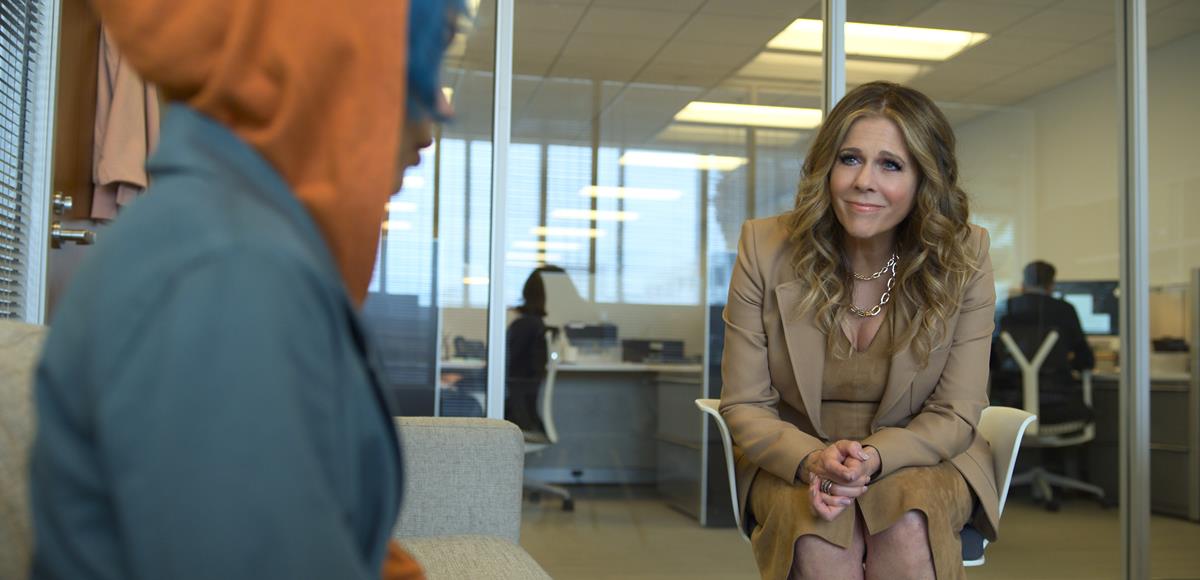
“The drama is disposable, yet the effect that it leaves — the imprint of images and the traces of movement, the mnemonic power of the cinema to evoke a world and a time in a mood and a glance — is haunting and enduring.”
READ MORE: Steven Soderbergh’s “Kimi” Is a Tech Thriller That Packs a Potent Outrage (The New Yorker)
But Rick Marshall at Digital Trends is right to concentrate on Soderbergh’s real target, the careless handling of privacy that digital assistants like Siri and Alexa engender. “One theme Soderbergh didn’t refrain from emphasizing in Kimi, however, is the rapidly blurring line between our personal privacy and the technology we’re growing increasingly reliant on in our daily lives,” he writes.
“I do wonder how far it’ll go,” Soderbergh said. “What’s the next step? You have a listening device that can tell from the timbre of somebody’s voice that there’s about to be an assault, or it’s an abusive situation based on the signature of a speech pattern. You can do that now.
“The question is, will somebody do it? If that was a setting on your own version of Kimi — that ‘Assault mode’ where, if it hears a certain escalation in the tone of a voice, like a smoke detector, it calls someone or sends out a ping — should that happen? Because you can do that now.”
READ MORE: Interview: How Kimi became the perfect pandemic thriller (Digital Trends)
Jim Vejvoda from IGN caught Soderbergh in a defiant mood about big tech. “These companies function like governments and like countries; they’re that big. As far as I can tell, there’s no country’s economy that’s working the way shit’s working over at Apple right now.
“These are incredibly powerful influential entities. Run by people who are not elected and yet have arguably as much or more control over our daily lives than our government does. It’s this kind of quiet transfer of influence and power that’s taken place in the last two decades [that] is interesting to me.
“It invariably leads to consequences that nobody could have anticipated, and as we know the law is so far behind what’s actually going on in the culture, that by the time they start having hearings on this it’s too late.”
Kimi is currently streaming on HBO Max.





